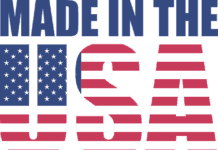By Peter J. Pitts
As American negotiators push to conclude North American Free Trade Agreement renegotiations, they should prepare to demand stronger protection of intellectual property rights. Robust IP protections would prevent Canada, Mexico, and other trading partners from freeloading off American ingenuity – particularly our medicines.
Development of a new drug is an expensive endeavor, requiring top-tier scientists and equipment and years of clinical trials. There are many false starts and dead ends. Altogether, it costs $2.6 billion to bring a single drug to market.
Intellectual property rights, such as patents, give inventors the chance to recoup this enormous investment. IP protections allow companies to sell drugs exclusively for a limited time.
The United States has some of the strongest IP protections in the world. As a result, it is the world leader in drug development. U.S. biopharmaceutical firms invest more than $60 billion annually in research and development, and they received more than half of all drug patents granted worldwide in 2014.
Unfortunately, other countries embrace our inventions while regularly undermining America’s IP. Take our NAFTA partner Canada. Our northern neighbor imposes price controls on drugs. Because of these artificial price caps, Canadians spend up to 55 percent less on pharmaceuticals than Americans. That’s unfair – especially when you consider that the average Canadian’s family income is slightly above the average American’s. The Canadian price caps eat into companies’ research and development capabilities and shift more of the costs onto American consumers, who pay more as a result.
Canada also regularly undermines American manufacturers’ patents. Its courts revoke American patents, enabling Canadian companies to create knockoff copies of our patented drugs. The problem is so bad that the U.S. Trade Representative put Canada on its 2017 “watch list.”
This isn’t just a Canada problem, or even just a NAFTA problem. Australia, which has a trade agreement with the United States, promised to notify U.S. patent owners if Australian drug companies want to make a generic version of a U.S. medicine that is still under patent. The notice is designed to give American companies a heads up, so they can take proactive legal action to prevent patent infringement. But Australia hasn’t been giving U.S. companies this advance notice. It only alerts American firms after Australian generic manufacturers begin marketing knockoff copies of the medicine.
In effect, the Australian government is aiding and abetting patent infringement. It’s helping domestic firms rip off American companies.
Or consider India and Brazil. These countries engage in “compulsory licensing” schemes. Compulsory licensing is legal under international law, but only in limited instances. It allows local companies to produce generic versions of patented medicines in desperate times – such as an infectious disease outbreak. However, India, Brazil and other nations abuse this policy and allow drug-makers to produce just about any generic without any urgent reason at all, and without the patent owners’ permission.
When other countries steal our IP, American manufacturers lose revenues needed to invest in more research and development. They’re forced to scale back operations or postpone new research projects, thereby hurting American workers and patients.
American trade negotiators ought to make strengthening IP rights their top priority. The status quo hurts American workers and undermines the creation of lifesaving drugs.
Peter J. Pitts, a former FDA associate commissioner, is president of the Center for Medicine in the Public Interest.





